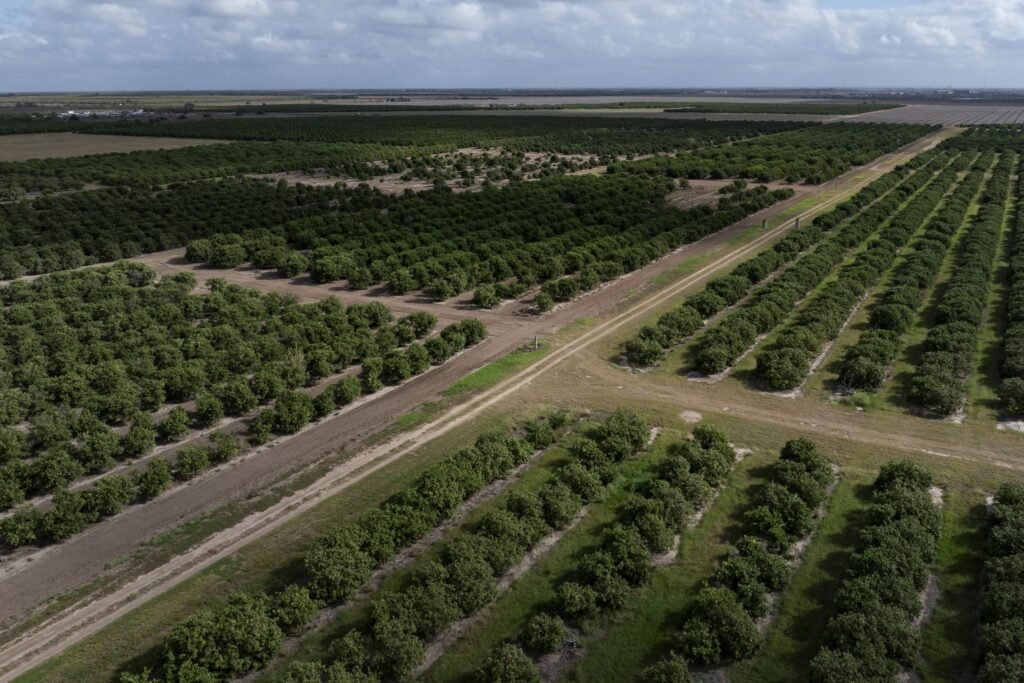Mexico’s Water Shortage Crisis: Implications for Texas Farmers
In the ongoing struggle over water rights, South Texas farmers are facing a severe deficit as Mexico fails to uphold its obligations under a long-standing treaty. As the deadline for water delivery under the 1944 Treaty on Utilization of Waters of the Colorado and Tijuana Rivers arrived, Mexican authorities reported a shortfall that has left U.S. farmers in a precarious situation.
Water Treaty Obligations
The 1944 treaty mandates that Mexico delivers 1,750,000 acre-feet of water to the U.S. from six Mexican tributaries every five years, translating to 350,000 acre-feet annually. In return, the U.S. agrees to provide 1,500,000 acre-feet from the Colorado River each year. Recent reports indicate that Mexico ended the cycle with a staggering deficit of 925,000 acre-feet, intensifying pressures on Texas agricultural communities already grappling with water shortages.
An amendment exists allowing this deficit to roll over into the next cycle during times of “extraordinary drought.” Unfortunately, this is not the first instance of Mexico falling behind, raising concerns among local stakeholders about the reliability of future water deliveries.
Impact on Agriculture
The repercussions of Mexico’s failure to deliver water are monumental. Farmers in the Rio Grande Valley are now forced to limit the amount they plant, as they struggle with only about 50% of the water needed for the year—approximately 1 million acre-feet. The drought, which has gripped both sides of the Rio Grande, further complicates the issue, with Mexican officials citing it as the reason for non-compliance.
Economic Ramifications
The crisis reaches beyond the fields. Businesses dependent on farming—ranging from trucking companies to seed suppliers—are feeling the strain. Dante Galeazzi, president and CEO of the Texas International Produce Association, notes that the entire agricultural ecosystem risks collapse. As farmers cut back on production, associated businesses suffer, creating a ripple effect throughout the economy.
The citrus industry stands as a particularly vulnerable sector. Producers express fears of a fate similar to that of the Valley’s sugar industry, which is still reeling from the closure of its last operational mill. Many in the agriculture sector are calling for immediate intervention and action from the U.S. government to hold Mexico accountable.
Legislative Actions and Trade Negotiations
In response to the ongoing crisis, Texas lawmakers are calling for stronger measures against Mexico. Even as farmers see some minimal relief from a recently signed agreement, the level of water delivered thus far remains woefully insufficient. Congresswoman Monica De La Cruz has been vocal about the need to integrate enforcement of the water treaty into upcoming U.S.-Mexico-Canada Agreement (USMCA) trade negotiations.
The Need for New Solutions
Lawmakers agree that merely enforcing the existing treaty will not resolve the long-standing issues of water shortages. Proposals for treaty renegotiation suggest a shift towards more regular, annual water releases instead of the current five-year cycle. This would provide a more sustainable solution to the agricultural challenges faced by Texans reliant on reliable water supplies.
Beyond immediate negotiations and compliance, experts stress the importance of exploring alternative water sources and conservation initiatives. As the population continues to grow, finding sustainable, long-term solutions for water management becomes critical, with Texas Representative Henry Cuellar advocating for a multifaceted approach to the issue.
Conclusion
The water crisis resulting from Mexico’s failure to fulfill its treaty obligations is a pressing concern that demands urgent action. With farmers at the forefront of this escalating dilemma, stakeholders across the spectrum—including lawmakers and agricultural advocates—must unite to find sustainable solutions. Reinforcing treaty compliance while seeking alternative water sources will be essential to safeguarding the livelihoods of Texas farmers and ensuring the state’s agricultural future.
For more information on agricultural water management issues, visit the Texas Commission on Environmental Quality and the International Boundary and Water Commission websites to learn more about ongoing efforts and updates related to water rights and management.


